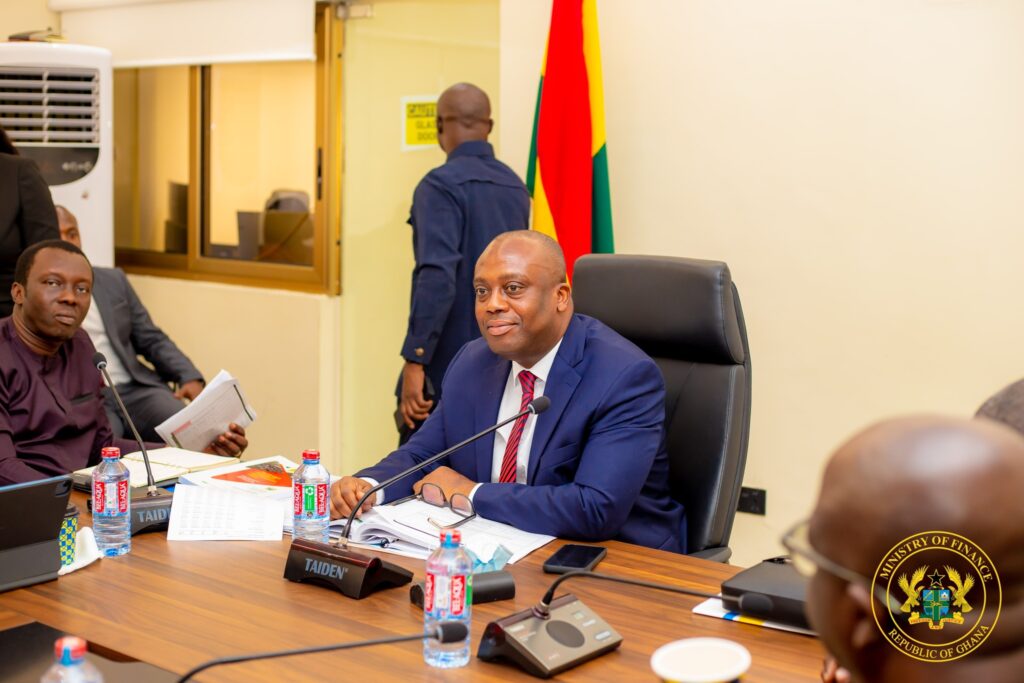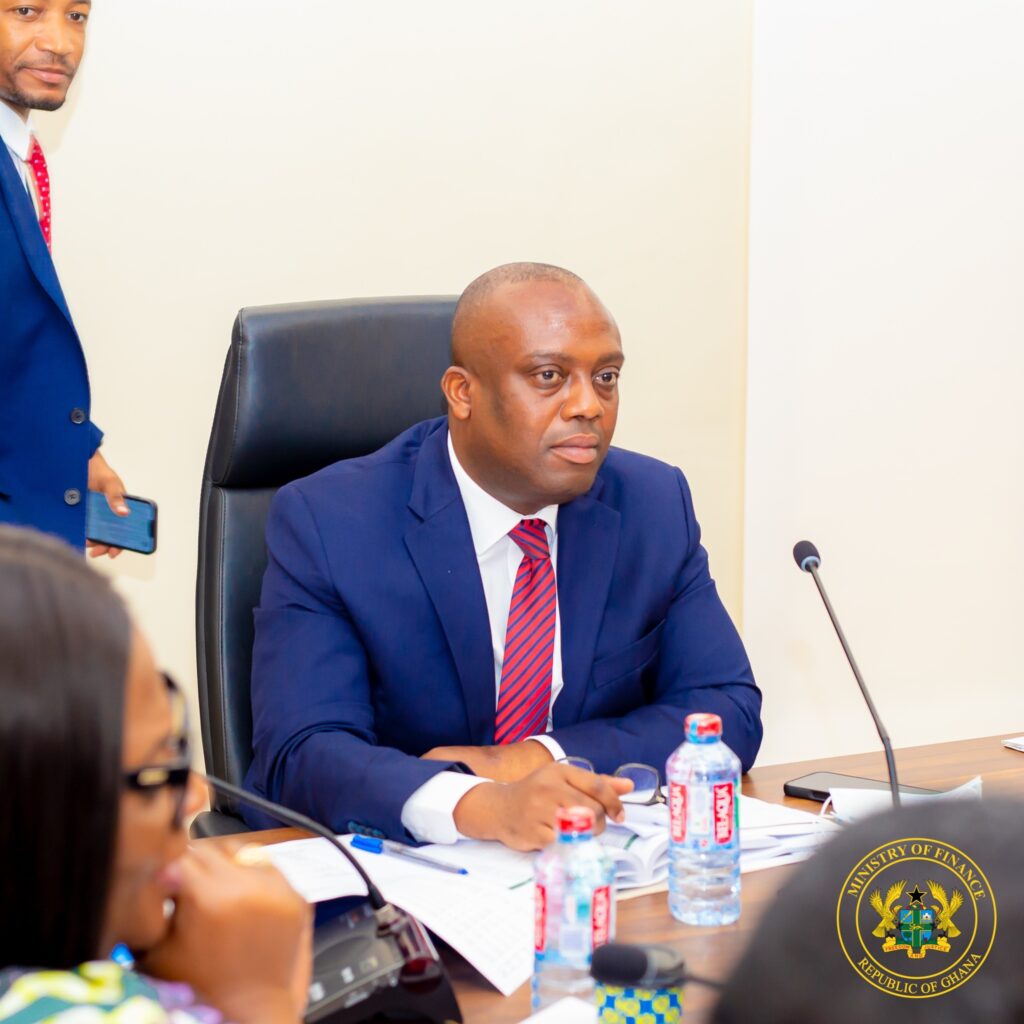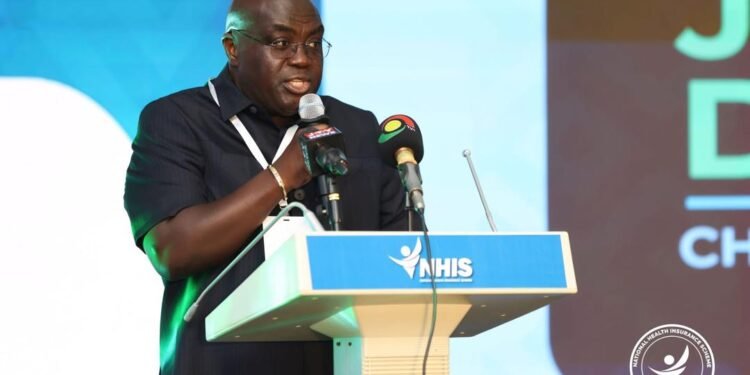The government of Ghana has made an urgent appeal to striking nurses to return to work, emphasising its commitment to resolving their grievances through dialogue while navigating the delicate balance of fiscal responsibility.
Speaking at an emergency press conference at Jubilee House, the Minister of Health, Hon. Kwabena Mintah Akandoh, and the Deputy Minister for Finance, Hon. Thomas Ampem Nyarko, collectively underscored the critical role of nurses in healthcare delivery and the significant budgetary implications of their demands.
The Health Minister, Hon. Akandoh, commenced by stressing the government’s readiness for further engagement with the Ghana Registered Nurses and Midwives Association (GRMNA) to implement their conditions of service.
However, he highlighted a critical hurdle: the current conditions of service are not factored into the 2025 national budget.
“We are mindful of the serious economic consequences of unbudgeted expenditure and want to avoid the economic slippages that led to the hardship in the recent past.
“The government commits to continuing to engage with the nurses in order to achieve a mutually acceptable outcome in the interest of the public”.
Minister of Health, Hon. Kwabena Mintah Akandoh
Key Intervention
Recognizing the immediate and acute suffering of Ghanaian patients due to the strike, the Ministry of Health has already initiated measures to mitigate its impact.
Hon. Akandoh announced the imminent publication of a comprehensive list of healthcare facilities to supplement those lacking nursing services, providing alternative avenues for patients seeking care.

In a fervent appeal, he urged “public-spirited retired nurses and midwives to volunteer their services for a brief period pending the resolution of the impasse,” demonstrating the gravity of the situation.
Furthermore, he extended deep appreciation to practising nurses who have chosen to remain at their posts, encouraging others to show “similar fellow feeling and assist our ailing compatriots, even as efforts are made to address their concerns.”
The Minister concluded by reiterating the government’s unwavering commitment to dialogue with the GRMNA to restore full nursing services.
Finance Ministry’s Commitment
Adding a crucial financial perspective, Hon. Thomas Ampem Nyarko, the Deputy Minister for Finance, affirmed the Ministry of Finance’s commitment to finding a resolution.
He acknowledged the indispensable contribution of nurses to healthcare, stating, “Our nurses are very, very critical to health care delivery, and we appreciate what they do.”
“The reality is that we have over 120,000 nurses, and the implementation of the current condition of service that they are demanding will have serious consequences for the budget. In fact, if we fully implement it, we are going to add in excess of GHS 2,000,000,000 to the compensation budget.”
Hon. Thomas Ampem Nyarko, the Deputy Minister for Finance
This, he emphasised, runs counter to the nation’s collective commitment to economic recovery, which includes maintaining a 1.5% primary balance surplus annually to achieve sustainable debt levels.

Deputy Minister Nyarko’s appeal resonated with the overarching theme of shared responsibility in economic management. He urged the “revered nurses” to engage in negotiations with the Ministry of Health and the Ministry of Finance to agree on a realistic roadmap.
This roadmap, he suggested, would facilitate the incorporation of what can be accommodated within the budget for the upcoming year.
He appealed to their understanding of the government’s strenuous efforts to improve the economy, emphasising the desire for a “win-win situation for all of us” through collaborative discussions.

The unified message from both ministers at the emergency press conference underscored the government’s dual approach: empathising with the nurses’ concerns while steadfastly upholding fiscal prudence for the nation’s long-term economic stability.
The path forward, they conveyed, lies in constructive dialogue and a shared understanding of the prevailing economic landscape, with the ultimate goal of restoring essential healthcare services to the Ghanaian populace.
READ ALSO: Ghana Urged to Reform Gold Trade, Prioritize Certification Standards























